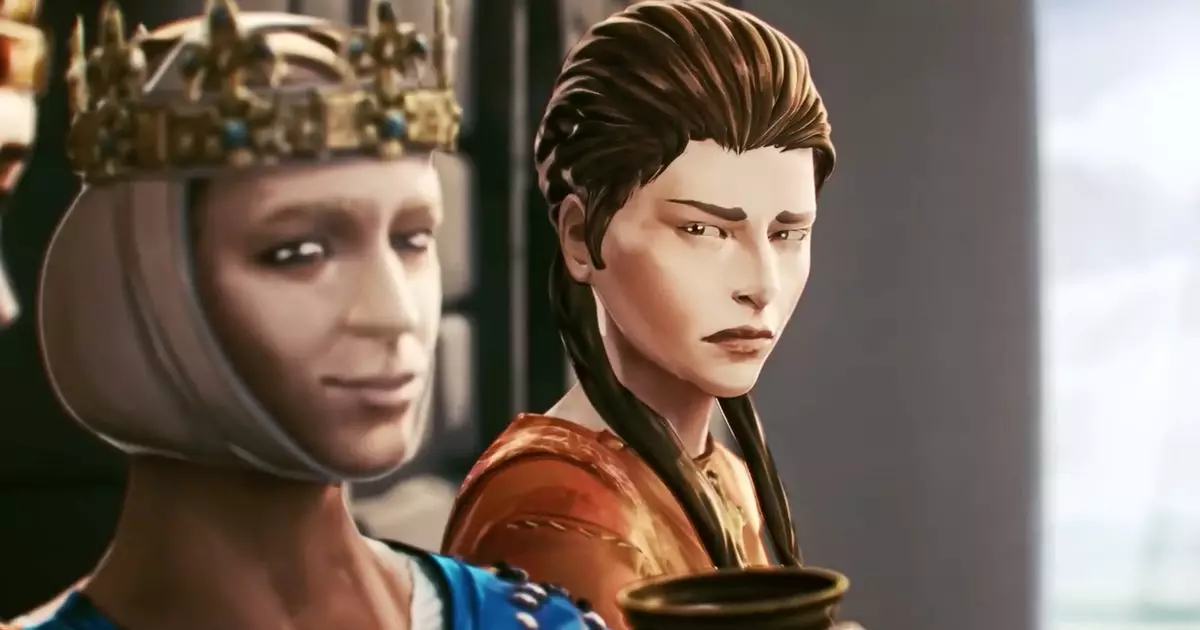Recently, Paradox Interactive took a bold step by launching a player survey for Crusader Kings 3 (CK3), inviting the community to shape the game’s future direction. This initiative is more than a mere gathering of opinions; it represents a commitment to player engagement that is often overlooked in the realm of video game development. By actively soliciting feedback, Paradox is not just listening to its audience but is also transcending the traditional developer-player relationship. This move acknowledges the fact that the game’s community is not a passive observer but rather an integral participant in the evolution of CK3.
The survey is particularly intriguing because of the range of questions posed to players. The opening query categorizes them into archetypes based on their gameplay preferences—whether they prioritize roleplaying or systemic challenges. This approach demonstrates that Paradox is attuned to the diverse motivations of its players, which is a crucial insight for any developer seeking to refine a grand strategy game. The question invites players to introspect and articulate their gaming identities, leading to a more profound understanding of how to enhance the CK3 experience.
The Art of Roleplaying vs. Systems Management
The distinction drawn in the survey between players who lean towards roleplaying versus those who focus on overcoming systemic challenges is fascinating. By dividing player motivations into these categories, Paradox highlights the complexity of player engagement in games like CK3. The roleplayers often invest emotionally in crafting narratives about their characters, cultures, and kingdoms, seeking satisfaction in storytelling rather than sheer mechanics. In contrast, players who favor systemic challenges prioritize strategy, optimization, and conquest, focusing on the mechanics of building a powerful empire through ineffable tactics. This dichotomy could significantly influence future developments and expansions.
This understanding of player perspective is invaluable. It indicates that designers are exploring the art of creating an interconnected experience that can satisfy both archetypes simultaneously. Imagine a scenario where roleplaying elements deeply inform systemic gameplay mechanics—such as marriage alliances that are not just about political gain but are steeped in rich narratives and character development. This synergy could elevate CK3 from being just a game to an immersive, living world.
Identifying Themes for Future Implementations
Apart from categorizing player motivations, the survey delves into thematic preferences, exploring areas like trade, feudalism, and religion. This focus not only invites players to express their desires for content but also offers Paradox actionable insights for future updates and expansions. For instance, considerations around “naval trade” or “merchant republics” are not merely academic; they reflect a tangible interest that could pave the way for new mechanics, challenges, and stories.
This thematic approach suggests a willingness to diversify the gameplay experience and enrich the game world. There is something inherently appealing about incorporating more intricate trading systems or sophisticated advancements in banking and commerce. These elements could seamlessly weave into the existing gameplay fabric, providing a fresh layer of depth that encourages exploration and experimentation.
In a broader context, the emphasis on rich, emergent storytelling—as highlighted by fan reception of the Roads to Power expansion—underscores a growing demand for unpredictable narrative developments that arise organically from gameplay. Such events could be game-changers, resonating with players’ desires for dynamic storytelling in a setting steeped in history and political complexity.
Paradox’s Commitment to Player Agency
Ultimately, the player survey released by Paradox demonstrates a robust understanding of community dynamics and an eagerness to implement feedback effectively. This initiative reveals a promising trajectory that prioritizes player agency, which is not only refreshing but essential for the longevity of a game like CK3. When developers embrace community involvement, they can create a richer, more vibrant gaming ecosystem.
This approach signifies a future where players may not merely experience the world of CK3 but actively shape it as well. As the game continues to evolve, the informative nature of this survey points towards a promising partnership between developers and players, one that is meticulously attentive to the desires and motivations of its community. By fostering this collaborative spirit, Paradox is poised to create an even more captivating experience that resonates with both roleplayers and strategy enthusiasts alike.

